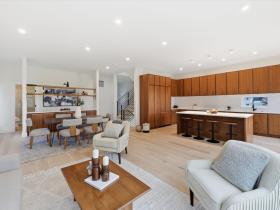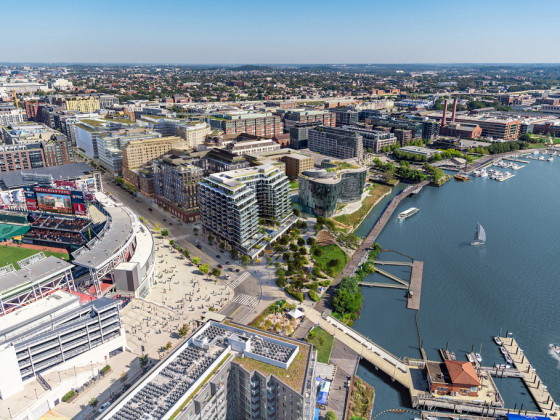What's Hot: Did January Mark The Bottom For The DC-Area Housing Market? | The Roller Coaster Development Scene In Tenleytown and AU Park
 Zoning Commission Votes to Make Inclusionary Zoning More Inclusive
Zoning Commission Votes to Make Inclusionary Zoning More Inclusive
✉️ Want to forward this article? Click here.
Inclusionary zoning (IZ) allows developers to construct denser projects than what is allowed by-right on a given site by mandating that a percentage of the housing units be set aside for households earning less than the area median income (AMI).

The 2015 income eligibility limits, based on an area median income (AMI) of $109,200
Eighty percent of AMI has been the benchmark for IZ units at new developments in the city, and with a 2015 AMI of $109,200 for the DC area, it has become increasingly apparent that households in this income bracket can often afford to rent at market rate. The Campaign for Inclusionary Zoning has been advocating since January 2015 for the Zoning Commission to reconsider these standards in order to serve a larger swath of residents who earn up to 60 percent AMI and are languishing on IZ lottery waiting lists.
Last night, the Commission voted in favor of lowering the standard affordability threshold for IZ rental units to 60 percent of AMI. Essentially, this means that one-bedroom IZ apartments will rent to this group for $1,100 a month, which is affordable for a family of two earning $52,000 annually, rather than the current average of $1,600. Renters will still be required to make a minimum of 40 percent AMI.
The Department of Housing and Urban Development calculates AMI for jurisdictions nationwide, and for 2016, that amount has decreased for the DC-VA-MD metropolitan area, to $108,600. Although expanding the affordability of IZ rental units is an important step, DC may be overdue for examining the overall efficacy of the program.
The IZ standards on for-sale units will not be affected by the approved amendment, and developments which have already been approved will also be unaffected. When considered with the current pace of development in the city, this change is expected to create over 2,600 apartments affordable to low-income households over the next 5-10 years.
The amendment will be enacted following a 30-day public review period.
This article originally published at https://dc.urbanturf.com/articles/blog/zoning_commission_votes_to_make_inclusionary_zoning_more_inclusive/11497.
Most Popular... This Week • Last 30 Days • Ever

As mortgage rates have more than doubled from their historic lows over the last coupl... read »

The small handful of projects in the pipeline are either moving full steam ahead, get... read »

Lincoln-Westmoreland Housing is moving forward with plans to replace an aging Shaw af... read »

The longtime political strategist and pollster who has advised everyone from Presiden... read »

A report out today finds early signs that the spring could be a busy market.... read »
DC Real Estate Guides
Short guides to navigating the DC-area real estate market
We've collected all our helpful guides for buying, selling and renting in and around Washington, DC in one place. Start browsing below!
First-Timer Primers
Intro guides for first-time home buyers
Unique Spaces
Awesome and unusual real estate from across the DC Metro














